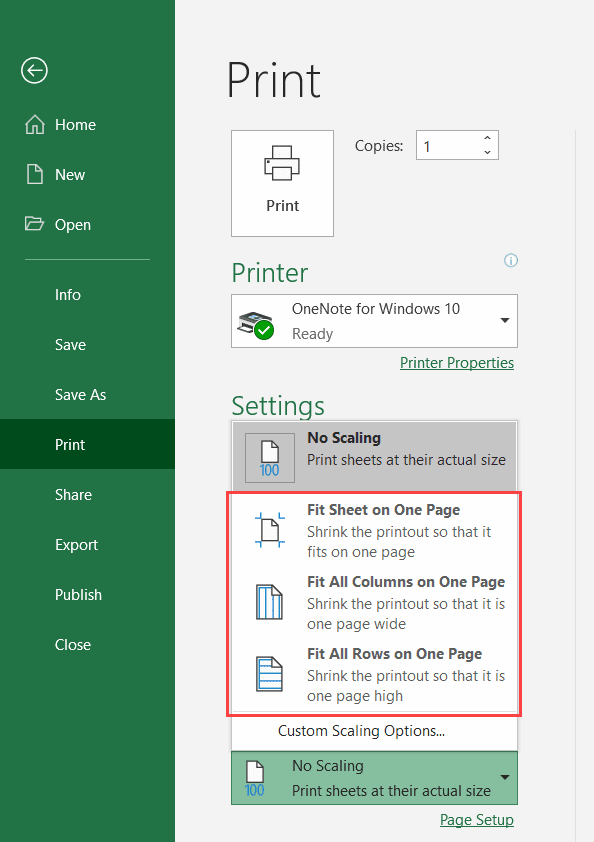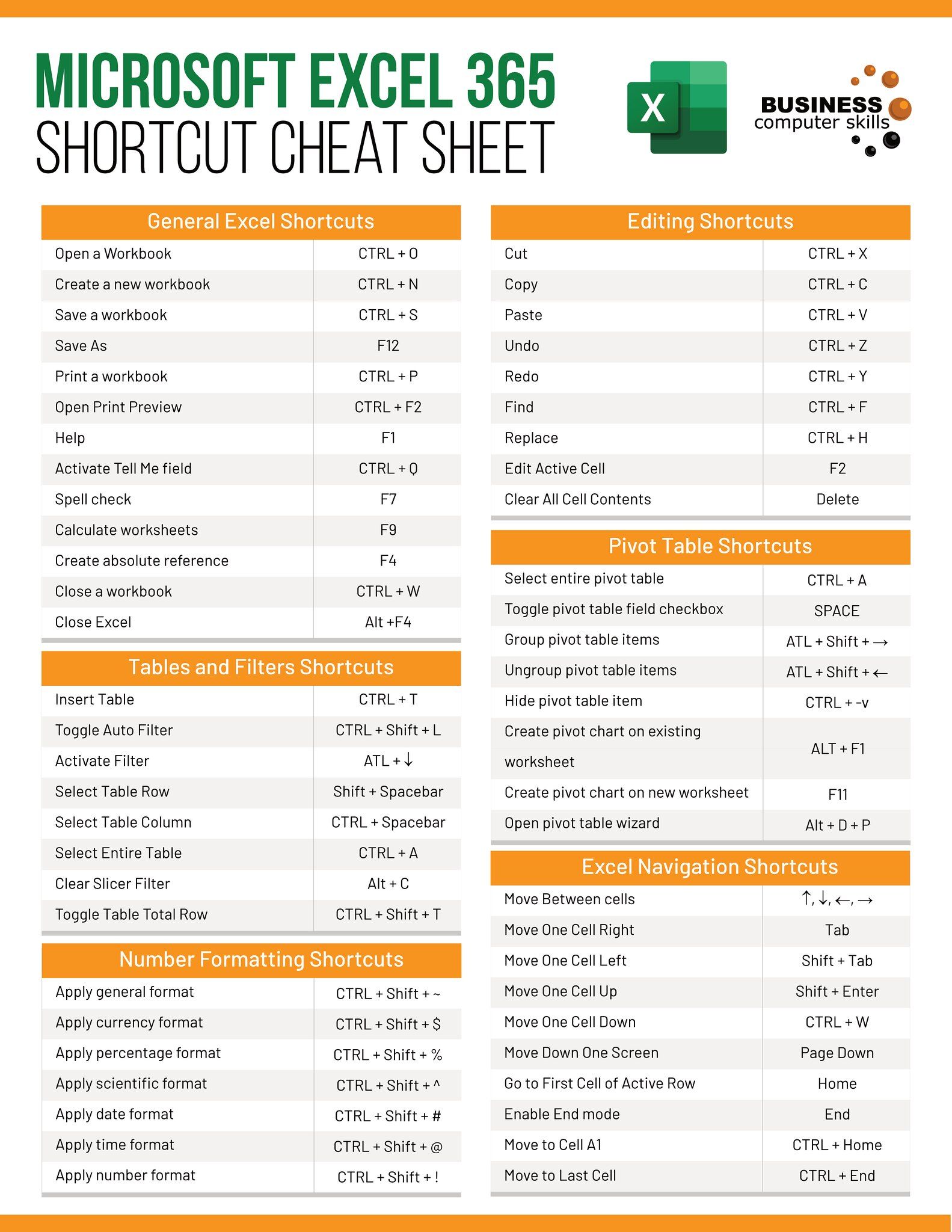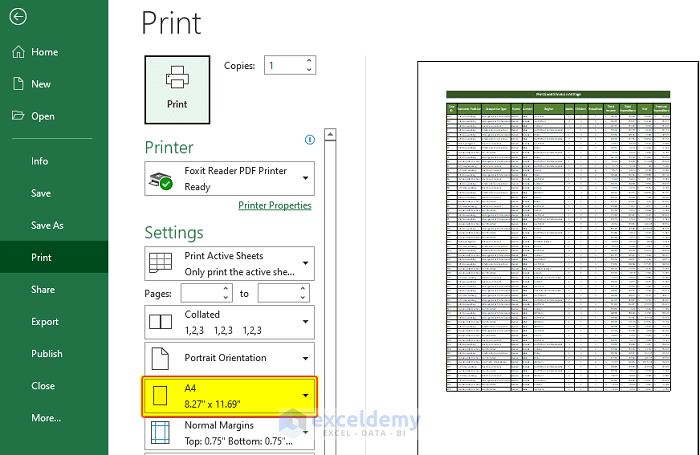Print Large Excel Sheets on One Page Easily

In the realm of data management and presentation, Microsoft Excel stands as a stalwart tool, favored for its robust functionalities in organizing and analyzing datasets. However, when it comes to the practical aspect of printing large Excel sheets, users often face the challenge of sprawling data that doesn't fit neatly onto a single page. This can lead to disjointed prints, multiple pages that are hard to piece together, and ultimately, frustration. Today, we will delve into effective strategies for printing large Excel sheets onto a single page, optimizing your workspace and documentation process.
Understanding Excel’s Page Layout

Before diving into techniques, it’s crucial to understand how Excel handles page layouts:
- Page Setup: Go to File > Page Setup to access settings where you can define paper size, orientation, and scaling.
- Margins: Excel provides preset margins or allows custom margins to ensure content fits properly on each page.
- Orientation: You can choose between Landscape or Portrait to alter how much data fits across or down the page.

Adjusting Fit to One Page

One of the simplest ways to print a large sheet on one page is by using the Fit to feature:
- Navigate to the File menu and select Page Setup.
- Under the Page tab, look for Fit to.
- Set the number of pages wide by 1 and the number of pages tall also by 1.
- Click OK to apply changes.
📝 Note: Using Fit to might reduce font size or truncate cell contents if the data is too extensive for the page.
Reducing Content Size

If fitting everything onto one page isn’t feasible, consider the following adjustments:
- Font and Column Width: Decrease font size or adjust column widths to make cells take up less space.
- Remove Unnecessary Columns/Rows: Hide or delete any non-essential data.
- Merge Cells: Consolidate information when possible to reduce the overall print area.
Page Break Preview

Excel’s Page Break Preview helps visualize where the sheet will break when printed:
- Switch to the View tab and click on Page Break Preview.
- Here, you can drag the blue lines to manually adjust where the page breaks occur.

Manually Setting Print Area

For greater control:
- Select the region you wish to print.
- Navigate to the Page Layout tab.
- Click on Print Area and select Set Print Area.
Using Page Setup for Complex Sheets

Sometimes, printing large Excel sheets requires more nuanced settings:
| Setting | Description |
|---|---|
| Print Titles | Repeat headers and footers on each printed page for consistency. |
| Gridlines | Include or exclude gridlines to make the printout easier to read. |
| Row & Column Headings | Add or remove the labels for rows and columns for clarity. |

Considerations for Print Quality

When adjusting to fit large datasets:
- Ensure text remains legible; avoid overly small font sizes.
- Check that data doesn’t overlap or is cut off at the edges.
- Balance aesthetics with functionality - readability should not be sacrificed for compactness.
Dealing with Chart Sheets

If your Excel workbook includes chart sheets, consider:
- Printing charts on separate pages for clarity.
- Resizing charts in the Excel sheet to ensure they fit within the print area.
Summary

Printing large Excel sheets onto a single page can streamline your documentation process significantly. By understanding Excel’s page setup options, utilizing the Fit to feature, reducing content size where possible, leveraging Page Break Preview, setting custom print areas, and fine-tuning complex sheets, you can produce clear, concise, and professional-looking prints. Remember to balance readability with space constraints to ensure your printed data remains useful and understandable. Whether for reporting, presentations, or record-keeping, these techniques will help you master the art of printing in Excel, making your data management tasks more efficient and visually appealing.
Can I print all sheets in an Excel workbook on one page?

+
No, each sheet must be configured individually to print on one page. However, you can group sheets to apply similar print settings to multiple sheets at once.
What if my data doesn’t fit even with ‘Fit to’ options?

+
Consider hiding columns, rows, or entire worksheets that aren’t necessary for your printout. Alternatively, you might have to split the data across multiple pages if it’s truly extensive.
Does changing the print orientation help with fitting data?

+
Yes, changing to Landscape orientation can accommodate more columns than Portrait. However, if your data has more rows, Landscape might still not be enough without further adjustments.
Can I save these print settings for future use?

+
While Excel doesn’t save these settings for each workbook separately, you can manually set them or use a template with pre-set print settings.